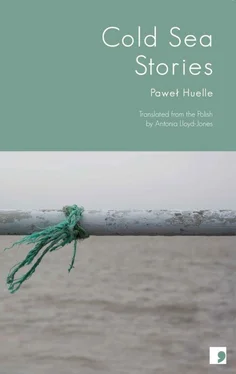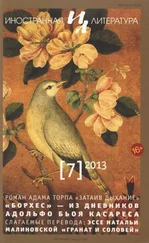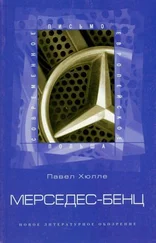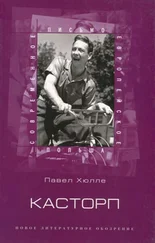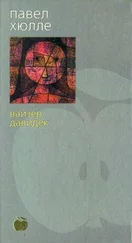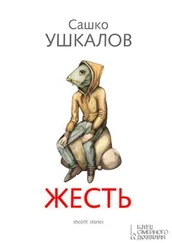‘I’ll write to Tel Aviv again,’ I said in parting. ‘I’m sure they haven’t forgotten our request.’
The trams and buses weren’t running the King, so there was a terrible crush on the local train. There was no other way to reach the centre of Gdansk, and of course that was where everyone wanted to go, to the main station, from where it only took seven minutes to get to the shipyard gates. And either in a whisper or in a lowered tone everyone really was talking about the same thing: so far they’re not shooting yet! But they’re sure to start, there can be no doubt - the only question is when?
I too could remember that December, exactly ten years ago: my father and I had gone up to the loft to listen for noises from the city centre through the open mansard window. The frosty air carried the boom of single shots, ambulance sirens and the rumble of tanks. The glow of fire shone red over the city. Now and then a helicopter appeared in the gloomy expanse behind it, firing flares, and then, in the brief flash of light, we could clearly hear two or three bursts of heavy machine-gun fire. There were moments when all these noises stopped, and we thought we could hear the shouts of the crowd repeatedly rising and falling.
‘Just remember,’ my father had said as we made our way down two floors to our flat, ‘this is the beginning of their end.’ Naturally when he said ‘their’ he wasn’t thinking of the workers. A few days later I saw the burned-down Party headquarters from the tram window, once the curfew had been lifted. At the Hucisko crossroads, right by the tram stop, I found a shipyard helmet flattened like a matchbox. The stench of burning and tear gas was everywhere. The food price hikes had been withdrawn and people were hurriedly doing their Christmas shopping. Just as hurriedly the portraits of the leaders who had been ejected from their posts were being removed from all the classrooms at my school. Our art teacher turned a blind eye as we burned them on a big pyre next to the school dump. Cyrankiewicz took far longer to burn than Gomułka, maybe because his pictures were on worse paper. At home in the evenings it was the only thing people talked about: how the workers had sung the Internationale before the Gdansk committee, how they had been shot at in Gdynia, how those arrested had been tortured, how those killed had been buried on the quiet with the help of secret agents, how the Soviet warships were anchored off our city, and how on television the new Party Secretary was promising the whole nation peace, prosperity and justice.
It was all running through my memory like a long forgotten black-and-white film from childhood. Now, as the crowd of sweaty people poured from the train onto the platform and headed in the hot August sun towards the shipyard gates, it was hard to imagine anyone wanting to shoot at this colourful motley of locals, tourists and holidaymakers, and certainly not in daylight in full view of the foreign journalists’ cameras. Apart from the obvious advantage of summer over winter there was another, much more profound difference. This time, rather than come out onto the streets, the workers had shut themselves in the shipyard; it was the street that was now coming to them, bringing food, money and information all the time. At the shipyard gates, alongside bouquets of flowers and a Polish flag, someone had hung a portrait of the Pope. The communiqués read over a loudspeaker sounded like a litany: factories all over Poland were joining the strike, literally by the hour. The plaster Lenin in the shipyard conference hall was having to watch patiently as the demand was formulated: yes, we want a pay rise, but more than that we want to have our own, completely independent trade unions.
‘So far it’s like a picnic,’ I heard Fredek’s voice behind me, ‘but I wonder how it’ll end?’
I turned to face him and saw he had come on his bike. ‘If they’re going to crush them,’ I said, ‘they’ll only do it at night, when there’s no one there.’
‘Maybe so,’ said Fredek, who didn’t look worried, ‘but first they’ll have to force the gates with a tank. Then fetch them out from every corner of the shipyard. With a bit of passive resistance that’ll take hours. But what if the lads set off a few acetylene cylinders? Or get on board a ship and cut the hawsers?’ At last we had reached the fence right next to the gates and Fredek had parked his bike, leaning it against the wire netting. ‘Besides, there’s one more thing too,’ he said, pointing at the portrait of the Pope. ‘We’ve got him, and that’s better than the troops!’
‘I’d rather rely on a few dozen striking factories. And the others that are ready to join in.’
‘Well, it’s actually happening,’ said Fredek. He took out a packet of Sport cigarettes and we lit up. ‘It’s a real revolution, can’t you see?’
Like this we passed the quarter hours, smoking and chatting, that was all. More and more delegations were being let through the gates, greeted with applause. Communiqués, committee resolutions, poems and prayers came pouring from the loudspeaker non-stop. And the mood of the endless rally intensified when a worker wearing an armband appeared from inside the gates: hands black with printer’s ink, he threw leaflets into the rippling crowd. Not a single scrap of paper was left on the ground. Everyone wanted his own copy of the bulletin that the censor hadn’t vandalised in advance, if only as a souvenir.
‘Not a bad duplicator,’ reckoned Fredek, ‘but they’re using too much ink, they haven’t got the experience yet.’
‘If only they’d read it out on the radio too,’ I joked, ‘to the whole country, don’t you think?’
‘We haven’t got the radio yet.’ Fredek suddenly became serious. ‘But have you got a bike?’
‘No,’ I replied, ‘but you must have heard what they said,’ – I pointed at the loudspeaker. ‘At the committee’s request the railway workers aren’t going to stop the trains. So the city won’t be paralysed.’
‘That’s not what I meant,’ said Fredek dismissively. ‘What do I care about the railway? I’m thinking of the bicycle express!’
And that was how, from Fredek’s simple idea, my own August revolution began. Next day I called at the shop on Holy Ghost Street.
‘They’re selling like hot cakes,’ said the salesman, smiling. ‘Or rather, we’ve sold out already – there’s just that one left.’ He pointed to a dark corner of the shop. ‘Rather a clunky import from Big Brother, and I haven’t got any spare inner tubes for it.’
Minutes later I was riding from Holy Ghost Street into Tkacka Street on a heavy but sturdy Ukraina bike, resistant to frost, cobblestones, rain, sun, sand and puddles. It had a very solid basket, a set of keys in a small box under the saddle, a dynamo and lights. Only the bell didn’t work, as if something inside its simple mechanism was welded together, but it didn’t matter. I rode slowly past the Arsenal building, the theatre, the market hall and the Academy of Sciences library, aware that the seat was a bit hard and would give me trouble unless I covered it with an old beret or a towel in the traditional way.
‘Good heavens!’ groaned Fredek when we met that evening on the corner of Łagiewniki Street. ‘It’s an armoured train instead of the cavalry! A propos, did you listen to Radio Free Europe yesterday? The Russkies are making noises about manoeuvres, saying they’re hurrying them up and things like that. Do you think they’ll enter the country?’
‘They’ve been here for the past thirty-five years,’ I said, barely managing to keep up with his nimble racing bike. ‘Legnica, Szczecinek, Borne Sulinowo, tanks, infantry, aeroplanes – they don’t have to enter the country at all, they only have to come out of their barracks!’
Читать дальше
